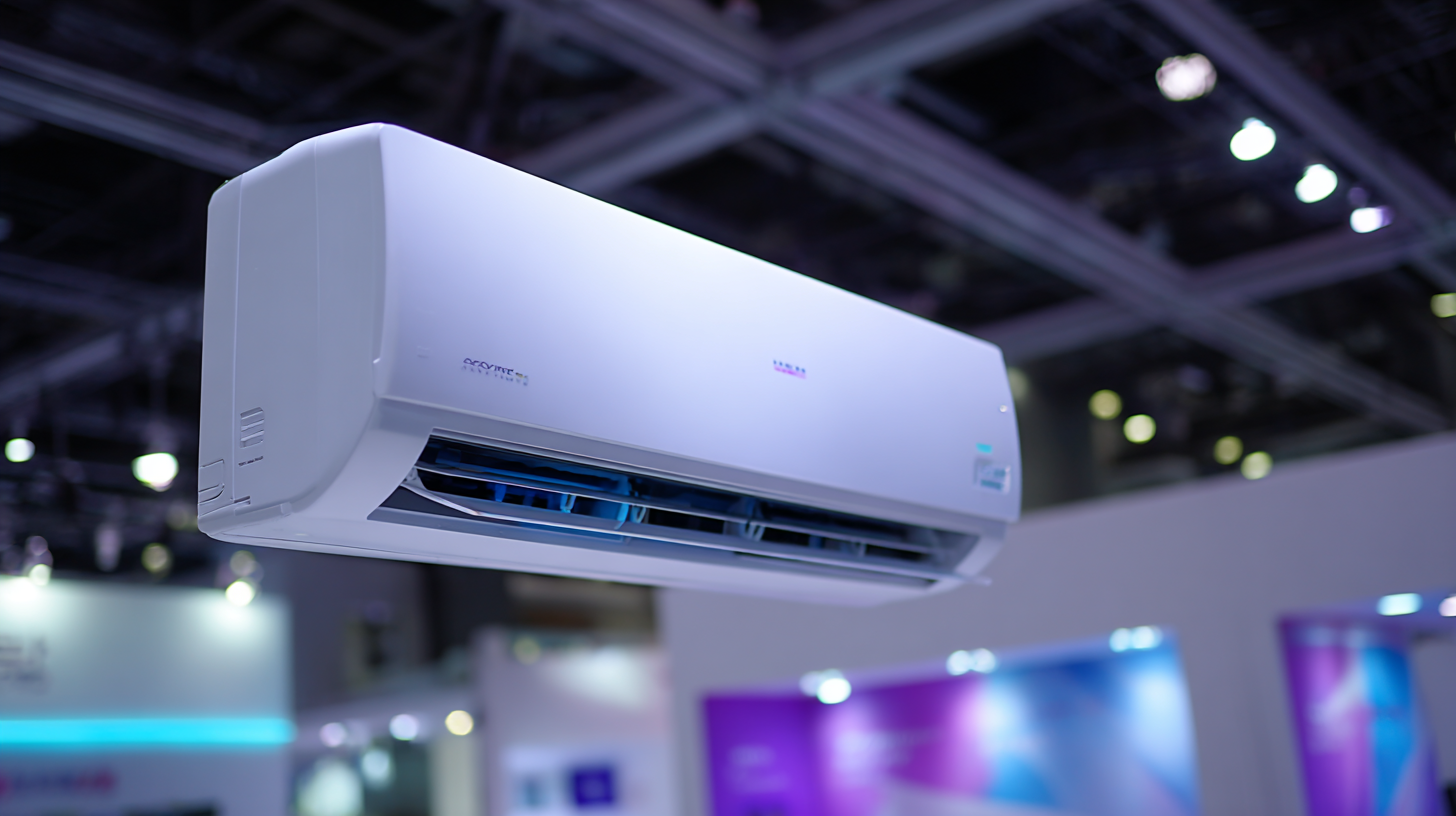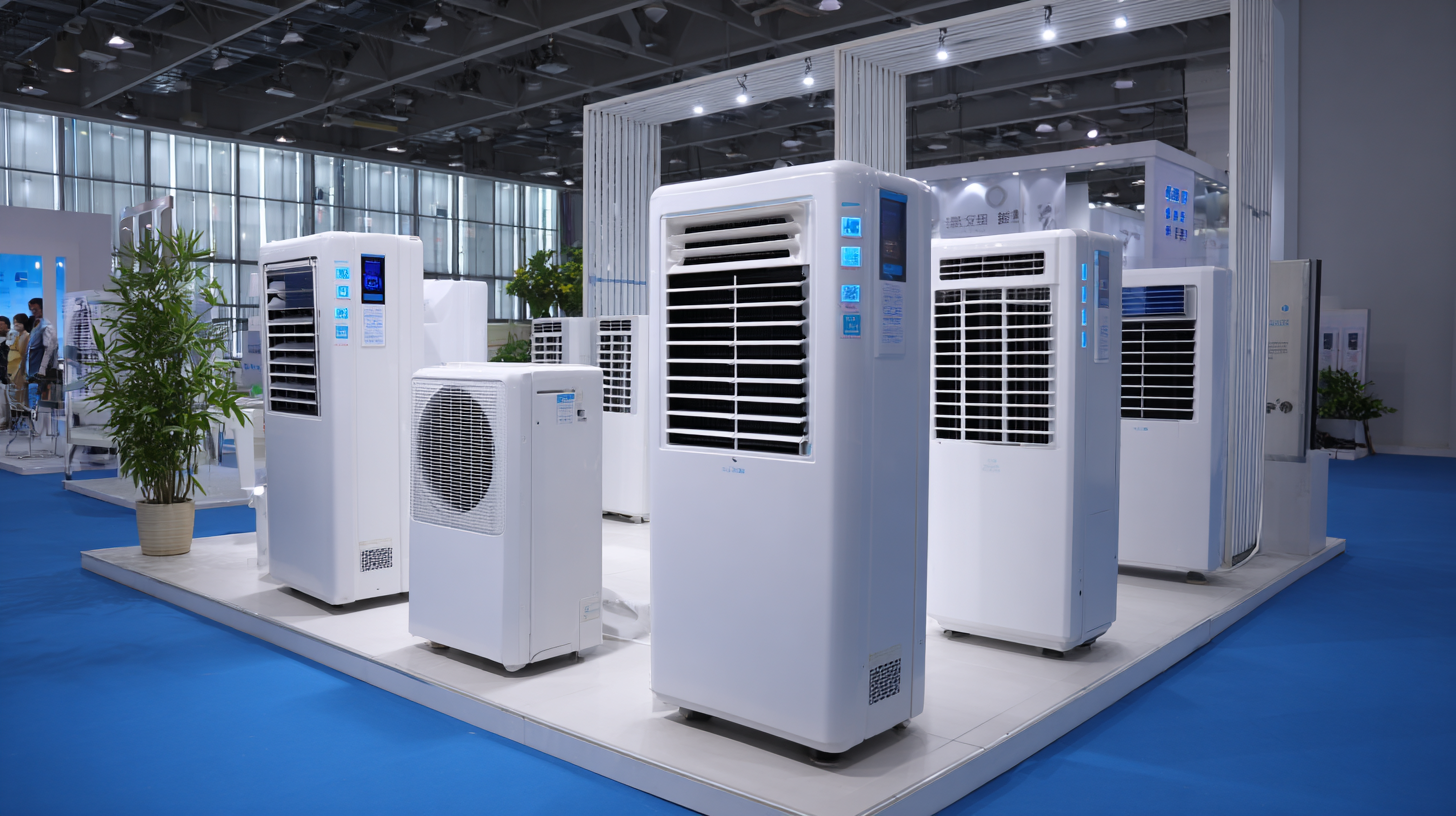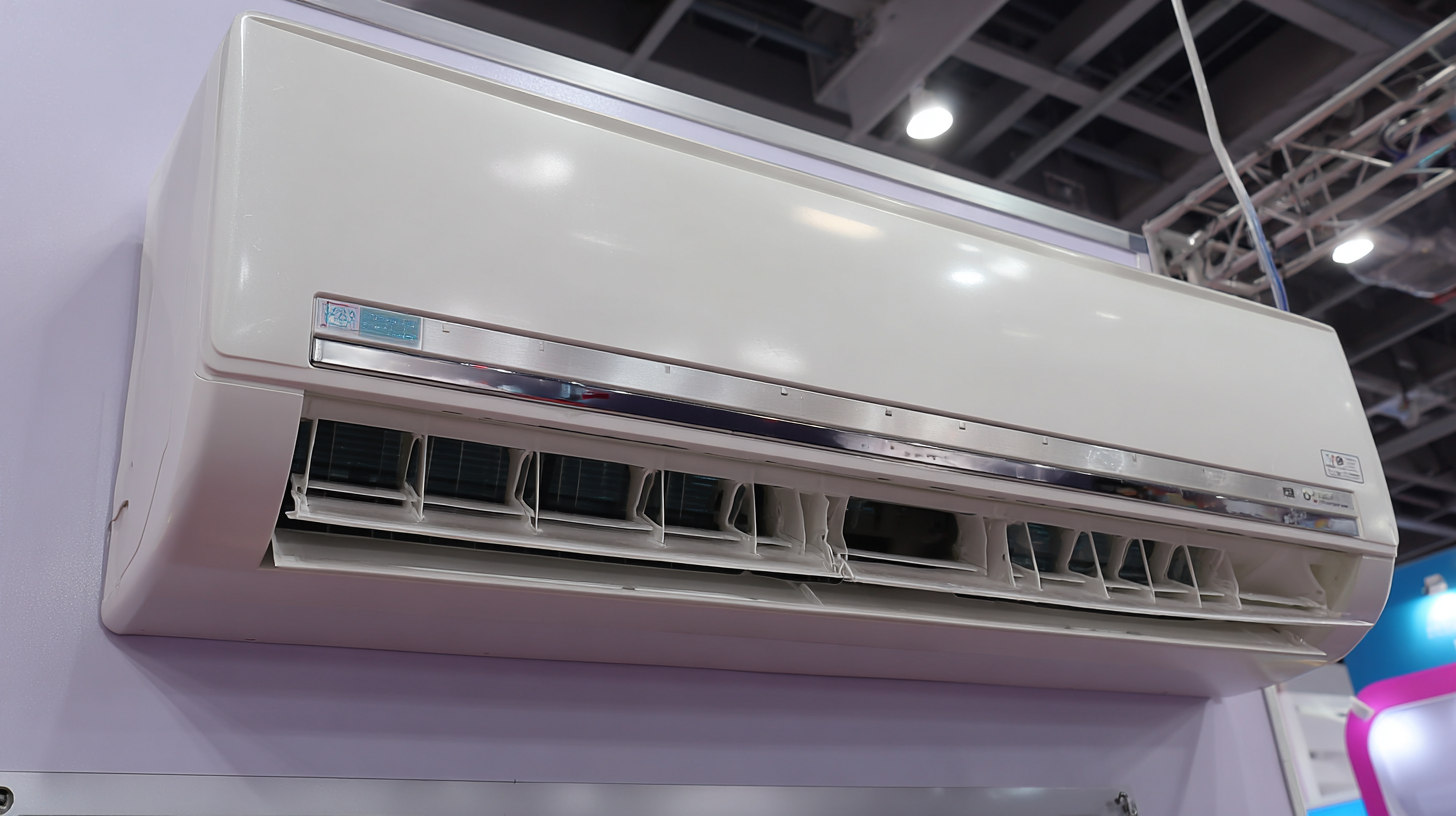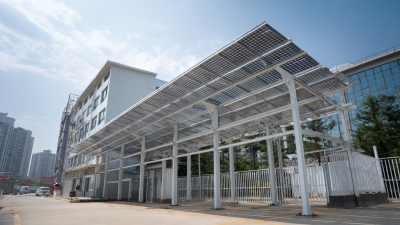Leave Your Message
The 138th Canton Fair in 2025 is set to showcase groundbreaking advancements in Airconditioner Inverter technology, reflecting a pivotal shift in the HVAC industry. According to a recent market report by Grand View Research, the global air conditioning inverter market is projected to reach USD 90.4 billion by 2027, growing at a compound annual growth rate (CAGR) of 10.9%. This surge is driven by increasing consumer demand for energy-efficient solutions amidst rising global temperatures and a growing emphasis on sustainability. Innovations highlighted at the Fair will feature enhanced inverter designs that promise greater energy savings and improved performance. As manufacturers strive to meet stringent energy conservation regulations, the evolution of Airconditioner Inverter technologies will play a crucial role in transforming the landscape of climate control solutions, positioning the industry for a greener future.

At the 138th Canton Fair in 2025, the focus will be on innovative energy efficiency standards for inverter air conditioners, reflecting the industry's commitment to sustainability. As global awareness of energy consumption rises, manufacturers are continuously developing advanced inverter technologies that significantly reduce energy usage while enhancing cooling performance. With the incorporation of intelligent energy management systems, solutions are evolving to not only meet but exceed current energy efficiency norms.
Recent advancements demonstrate a pivotal shift towards smarter appliances that prioritize eco-friendliness. For instance, new initiatives designed to recover waste heat and integrate renewable energy sources are being highlighted, paving the way for a more sustainable approach in the HVAC sector. The introduction of cutting-edge inverter units will showcase how modern air conditioners can operate with reduced environmental impact, making them an essential topic of discussion at the fair. As the industry moves towards these innovative energy efficiency standards, consumers can expect to find air conditioning solutions that align with a greener lifestyle and significantly lower utility bills.
| Feature | Standard 2023 | Standard 2025 | Improvement (%) |
|---|---|---|---|
| Energy Efficiency Ratio (EER) | 3.5 | 4.0 | 14.29% |
| Seasonal Energy Efficiency Ratio (SEER) | 15.0 | 18.0 | 20.00% |
| Noise Level (dB) | 45 | 40 | 11.11% |
| Smart Features | Basic | Advanced AI | - |
| Refrigerant Type | R-410A | R-32 | - |
At the 138th Canton Fair 2025, the spotlight will be on the latest innovations in air conditioner inverter technology, particularly emphasizing the integration of smart features and Internet of Things (IoT) capabilities. Modern inverter systems are increasingly being designed to synchronize with various smart home devices, allowing users to control their air conditioning units remotely through mobile applications or voice-activated assistants. This level of connectivity not only enhances convenience but also aims to optimize energy consumption, supporting eco-friendly practices.

Moreover, the emergence of AI-driven functionalities within inverter technology is revolutionizing user experiences. With machine learning algorithms, air conditioners can now learn from user preferences, adjusting their settings automatically for maximum comfort and efficiency. For instance, the systems can predict temperature adjustments based on historical usage patterns, ensuring a comfortable environment while minimizing energy waste. This intelligent adaptability is paving the way for a cleaner, more sustainable future in climate control, making advanced inverter air conditioners a pivotal part of modern smart living.
The 138th Canton Fair 2025 showcased a significant surge in inverter air conditioner technology, reflecting the increasing demand for energy-efficient solutions in the global market. With rising temperatures and the growing awareness of climate change, consumers are leaning towards inverter air conditioners, which utilize advanced technology to regulate temperature while consuming less energy. This trend is anticipated to drive sales growth, projecting that the worldwide inverter AC market will see a compound annual growth rate (CAGR) of over 15% leading up to 2025.
Market analysts predict that by 2025, inverter air conditioner sales will not only dominate the HVAC sector but also become essential in residential and commercial applications. Factors contributing to this growth include lower operating costs, enhanced comfort through precision cooling, and the integration of smart home technologies. As manufacturers innovate with features like IoT connectivity and eco-friendly refrigerants, consumers are likely to consider inverter air conditioners a worthwhile investment, further propelling market growth. The Canton Fair 2025 is a testament to this evolving industry, providing a platform for stakeholders to explore and harness these innovative trends.
At the 138th Canton Fair in 2025, the spotlight on inverter technology significantly highlighted the impact of stringent environmental regulations. As governments worldwide increasingly prioritize energy efficiency and sustainable practices, manufacturers responded with innovative designs that surpass compliance requirements. This shift not only fosters a greener planet but also aligns with consumer demand for eco-friendly appliances.
Several exhibitors showcased advancements in inverter technology that leverage cutting-edge materials and intelligent algorithms to enhance energy-saving capabilities.
These technologies enable air conditioners to adapt in real-time to fluctuating environmental conditions, optimizing cooling performance while minimizing energy consumption. The influence of regulatory standards is evident, pushing manufacturers to prioritize innovation that not only meets the current benchmarks but also anticipates future policy changes.
As the fair demonstrated, the intersection of environmental regulations and technological advancement is paving the way for a new era of air conditioning systems that are both efficient and responsible.
 At the 138th Canton Fair in 2025, the spotlight on inverter air conditioners reflected a significant shift in consumer preferences and buying behaviors. Modern consumers are increasingly valuing energy efficiency and sustainability, pushing manufacturers to design units that not only cool effectively but are also environmentally friendly. The integration of smart technology has become paramount, allowing users to monitor and control their air conditioners via smartphones. This tech-savvy approach caters to a growing demographic that prioritizes convenience and connectivity in their home appliances.
At the 138th Canton Fair in 2025, the spotlight on inverter air conditioners reflected a significant shift in consumer preferences and buying behaviors. Modern consumers are increasingly valuing energy efficiency and sustainability, pushing manufacturers to design units that not only cool effectively but are also environmentally friendly. The integration of smart technology has become paramount, allowing users to monitor and control their air conditioners via smartphones. This tech-savvy approach caters to a growing demographic that prioritizes convenience and connectivity in their home appliances.
Additionally, aesthetic appeal is influencing consumer choices. Buyers now prefer inverter ACs that blend seamlessly with modern interior designs, leading to a rise in customizable options and sleek designs. Manufacturers are responding by offering a range of colors, finishes, and smart features that appeal to design-conscious consumers. This shift indicates that today's buying behavior is not solely based on functionality; rather, consumers are looking for products that enhance their living spaces while being energy-efficient. As such, understanding these trends is crucial for companies aiming to capture the attention of consumers in this highly competitive market.




